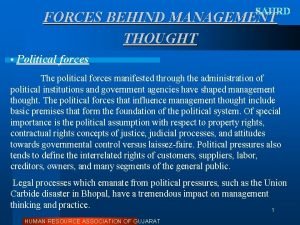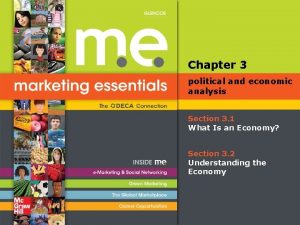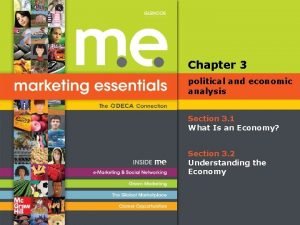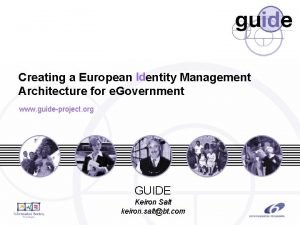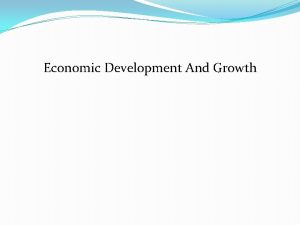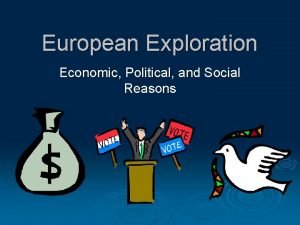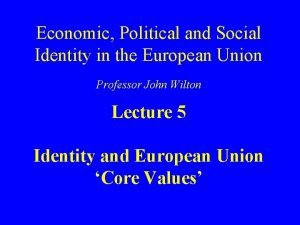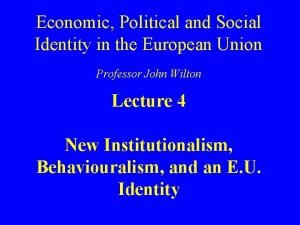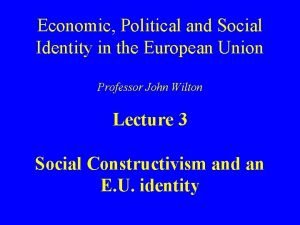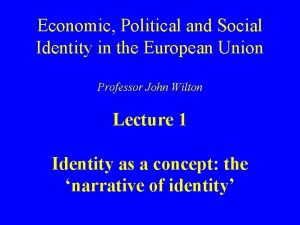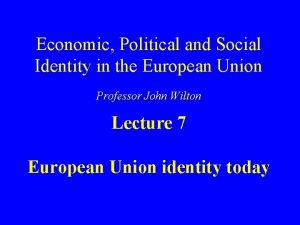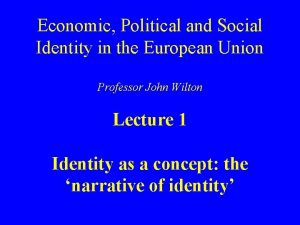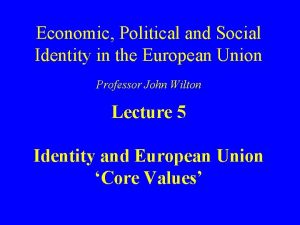Economic Political and Social Identity in the European








- Slides: 8

Economic, Political and Social Identity in the European Union Professor John Wilton Lecture 2 The development of the identity of the European Union

Lecture 2 1. The founding principles and historical development of the European Union 2. - from an initial economic basis to the incorporation of social issues and the aim of producing an E. U. identity 3. 2. Theories of European integration, and how they relate to the production of an E. U. identity

Lecture 2 The European Coal and Steel Community (ECSC) (1951) The European Economic Community (EEC) (1957) The European Community (EC) (1967) The European Union (EU) (1993)

Lecture 2 The Social Charter of the Maastricht Treaty on European Union, 1993 1. 2. 3. 4. 5. 6. 7. 8. 9. 10. 11. 12. 13. 14. 15. Introduction Twelve areas of fundamental social rights for workers (i) freedom of movement (ii) employment and remuneration (iii) improvements in living and working conditions (iv) social protection (v) freedom of association and collective bargaining (vi) vocational training (vii) equal treatment for men and women (viii) rights to information, consultation and participation (in workplace) (ix) health and safety (x) protection of children and adolescents (xi) protection of elderly persons (xii) protection of disabled persons 3. The implementation of the Charter

Lecture 2 • THEORIES OF EUROPEAN UNION INTEGRATION 1. FEDERALISM 2. FUNCTIONALISM 3. NEO-FUNCTIONALISM

Lecture 2 THEORIES OF EUROPEAN UNION INTEGRATION 1. FEDERALISM 2. 3. 4. 5. - 3 main assumptions a) societies are complex and diverse b) societies are pluralistic c) as societies are diverse and pluralistic, institutions that protect diversity and autonomy, but which produce unity, are required

Lecture 2 THEORIES OF EUROPEAN UNION INTEGRATION 2. FUNCTIONALISM - the functions of different elements of societies (including public policy) would encourage and produce cooperation and integration

Lecture 2 THEORIES OF EUROPEAN UNION INTEGRATION 3. NEO-FUNCTIONALISM - based on principle of ‘spillover’ (as integration occurs in one area/sector of E. U. the benefits would ‘spillover’ into other sectors, and produce greater integration in them)
 Various forces behind management thought
Various forces behind management thought Pest political economic social technological
Pest political economic social technological Which political cultural and economic characteristics
Which political cultural and economic characteristics Chapter 3 political and economic analysis
Chapter 3 political and economic analysis Chapter 3 political and economic analysis
Chapter 3 political and economic analysis Id federation
Id federation Economic growth and development
Economic growth and development Social identity map
Social identity map European exploration economic reasons
European exploration economic reasons
